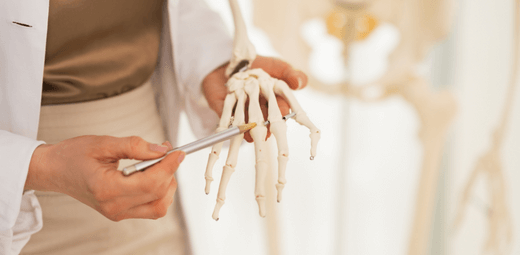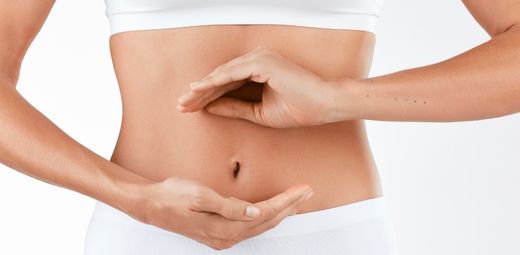We’ve all heard of the common bone health supplements like calcium and vitamin D. Are these the only supplements required for optimal bone health or should we look to seek out the many nutrients directly responsible for bone growth, function and structural stability?
In order to understand the nutrients that help contribute to bone formation and health, it’s important to understand how bone is built and maintained. A phrase that I believe sums this up perfectly is to think of your body storing bone tissue in a body ‘bone bank account’. Your body is a bank in which you regularly ‘deposit’ and ‘withdraw’ bone tissue.
In our childhood and adolescent years, new bone is added to our skeleton faster and in larger amounts, contributing to its density and structure1. We continue to deposit more than we withdraw all the way through our childhood, adolescent and young adulthood.
Bone mass peaks during our thirties, and then as with most things, starts to decline as we age. More ‘withdrawals’ are made than ‘deposits’ which means that we need to replace these withdrawals with vital bone-forming minerals and vitamins.
A common condition in which withdrawals are made much faster than deposits is osteoporosis in which menopause can be a trigger. As with most things health related, prevention is far better than cure, therefore if you are pre-menopausal, consider supplementing with bone-loving nutrients to help reduce your risk.
There is a notable trend throughout this article, which highlights the collaborative function nutrients have on bone health. One nutrient cannot reach its potential without the help of another, and multiple nutrients interact with each other to boost bone health, strength, and function.
The body works in the same way, with multiple systems supporting each other to keep us functioning. Read on to find out the nutrients you should consider supplementing with to support your bones.
Vitamin D
Now that we’re heading into Autumn, shorter days and generally less sunlight results in less vitamin D stores in the body.
Vitamin D supplementation is commonly recommended for anyone living in the Northern Hemisphere as we simply can’t get enough through skin exposure and conversion through UV rays during colder months. It’s widely accepted that vitamin D is required for bone health, but do you know exactly why? Let me tell you…
Vitamin D helps our body to absorb calcium effectively. If we are in a state of vitamin D deficiency, this stimulates our parathyroid hormone to start signalling our body to start promoting skeletal reabsorption2. To put it into simpler terms, it promotes bone loss. Not good.
Vitamin K2
Vitamin K2 is a less known but just as vital bone supporting nutrient. K2 also contributes to bone formation, with studies supporting direct links between vitamin K2 deficiency and osteoporosis3.
May I add that Purolabs vitamin D supplement contains K2 to help vitamin D reach our tissues to be utilised effectively. Many vitamin D supplements on the market don’t include K2 which is vital for us to be able to use the vitamin D we’re digesting. We’re just looking out for you!
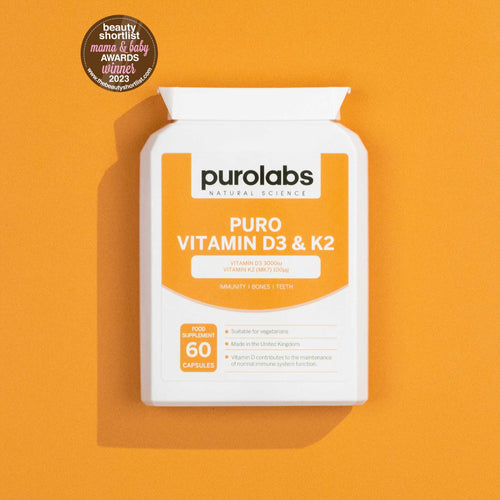
Vitamin D3 & K2
Calcium
Calcium, oh calcium. THE mineral we all think of when it comes to what makes the physical building blocks of bones. An incredible 99% of the calcium we ingest is stored in the bones, with the mineral contributing to the ‘hardening’ and strength of bones, with adequate levels of calcium in the body directly linked to less fractures4.
Calcium cannot perform its bonely functions without several minerals, which regulates how much of it we absorb and utilise. Read on to find out just how many nutrients help with calcium absorption (spoiler, there are many!).
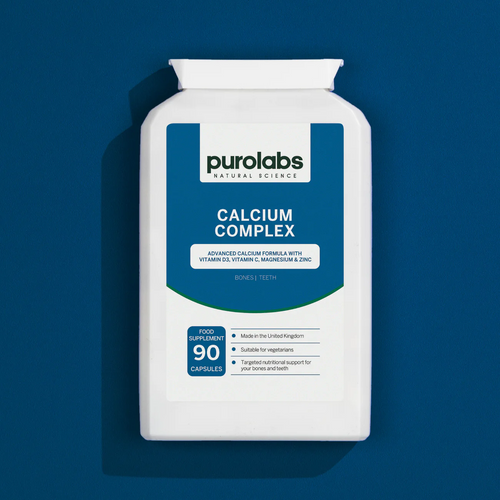
Calcium Complex
Collagen
A supplement that many might not consider when looking to build bone strength is collagen. What’s interesting however, is collagen makes up a large percentage of the framework that contributes to the structure of bones5.
Collagen works in synergy with calcium to strengthen and fortify the strength and flexibility of bones and is necessary for bone mineralisation, helping to reduce susceptibility to fractures6.

Collagen Complex
Magnesium
Studies unearthed that approximately 30-40% of predominantly menopausal women with osteoporosis reported low magnesium levels7, with magnesium playing a vital role in bone metabolism8.
Magnesium deficiency has shown to potentially lead to crystal formation on bone cells, directly affecting thyroid hormones and increasing low grade inflammation. Inflammation in the body will hinder absorption and utilisation of important nutrients therefore supplementing with magnesium has been shown to help.

Magnesium Citrate
Zinc
Another mineral that has antioxidant benefits and helps to lower the risk of bone inflammation is Zinc. Zinc is yet another mineral which is incredibly useful in supporting bone health. Studies show that zinc has regulatory roles in bone reabsorption, remodelling and mineralisation9.
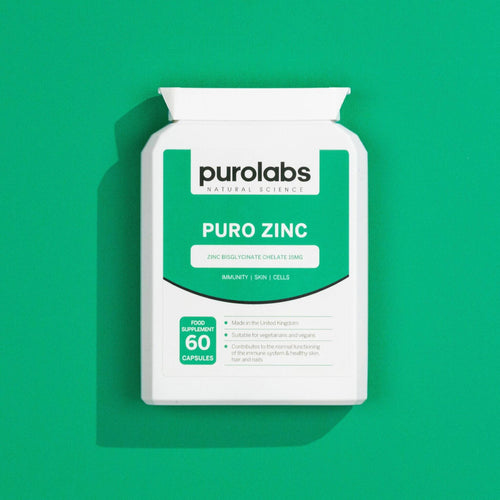
Zinc
Chromium
Chromium is another nutrient that doesn’t receive much limelight yet has incredible bone health benefits. Chromium has been shown to help support insulin regulation, which may be bone-protective by helping to balance bone breakdown and reabsorption.
Its insulating regulating benefits also help to manage inflammation in the body which as mentioned allows for bone-boosting nutrients to be absorbed and utilised effectively.
Chromium also helps to reduce the loss of calcium, which as we know is vital for bone structure and density.
Silica
As with most nutrients, silica levels in the body begin to decrease with age yet is needed even more as we age because of its protective effects on bone calcification and strength. It is an important trace nutrient that is involved in the structures that make up our entire body from head to toe.
Silica boosts calcium’s bone building effects, by speeding up the process of deposition and hardening of bones as they mature.
Silica deficiency can cause calcification of connective tissues, causing loss of elasticity and ‘bounce’. Lack of silica is very much associated with external signs of ageing and is found in abundance in hair, skin, and nails10.
Silica rich food sources include:
- Oats
- Brown rice
- Cherries
- Cucumbers
- Almonds
- Barley
Boron
Boron is yet again another mineral that helps calcium do its thing for healthy bones.
A boron deficiency can result in an increase in calcium excretion and inhibited magnesium absorption, not ideal for bone formation. Studies have also shown that deficiency is directly linked to osteoporosis11.
This trace element helps bone mineral density as well as having important functional roles in hormone metabolism and vitamin D metabolism, which we know is a key vitamin for bone health12.
















